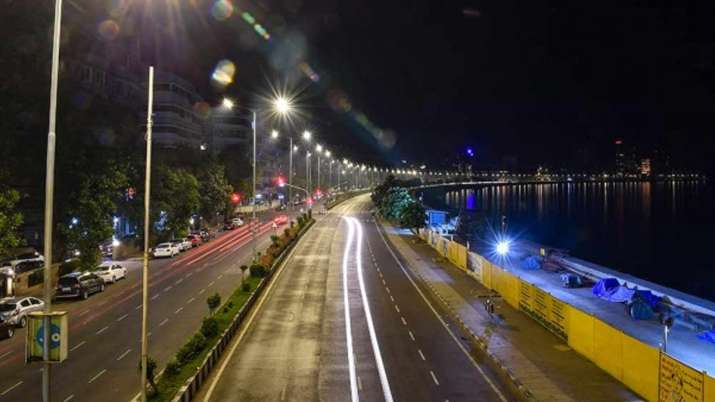[ad_1]

Can night curfew break Covid-19 transmission chain? What experts say
As Covid-19 cases surge in India, several state governments have announced restrictions to limit the movement of people. Night curfew has been imposed in cities like Mumbai, Delhi, Bengaluru and others as part of measures to flatten the curve. However, night curfew is not the answer to the second wave of coronavirus nor a complete lockdown. The government is in no mood to impose a lockdown, given that it could hit the country’s financial health badly once again. Successive lockdowns in 2020 resulted in massive job loss and economic activities. Given the current economic considerations, a complete lockdown is no longer an option as it will only worsen the economic situation. So, what is the solution at this stage and how the second wave can be controlled?
Can night curfew arrest rising Covid graph?
Experts say that night curfew will have a little role in controlling the rising number of COVID-19 cases. They attributed this spike to lack of adherence to mask wearing, hand hygiene and social distancing rules. They are of the view that night curfew won’t help in breaking the transmission chain but it might slow down transmission, adding that there is an urgent need to shift the focus on vaccination and ensuring that people are wearing masks, maintaining hand hygiene and social distancing norms are not flouted.
Paresh Sawant, Chief Intensivist at Bhatia Hospital in Mumbai, suggested that provision to impose a hefty fine on Covid-19 rules violators must continue. “Measures like wearing masks, hand hygiene and social distancing is of utmost importance to reduce disease transmission. So any measures which reduce crowding definitely helps to decrease viral transmission,” Sawant said.
“Night curfew along with day restrictions will not surely end Covid but the number of cases will definitely go down. It’s important to note that it reduces the burden on healthcare system and deaths due to unavailability of hospital beds can be prevented,” he added.
Rajan Verma of Oncquest Laboratories said that Covid-19 can be countered at personal level. He said that effort to immunise the population is commendable given the enormity of the task. He said that night curfew can help in conveying the seriousness of the situation and sensitise people on the need to follow all safety measures.
Meinal Chaudhry, Chief of Strategy, Aakash Healthcare & Super Specialty Hospital, Delhi, said that night curfew measures can help partially but not can wholly help in controlling the rising number of cases, adding that a wider coverage of vaccination and RT-PCR tests could be critical in containing the cases. People who are at risk like those going out for work should be given vaccine first.
“More focus should be given to day-time activities, especially in crowded areas like markets and enclosures such as malls and cinema halls to check if mask wearing and social distancing norms are being followed,” Meinal said.
“Imposing only a night curfew of 8 hours won’t serve the purpose. It might slow down the transmission chain but it won’t break it. Following the Heave fines should be imposed on those who aren’t following the guidelines,” Gurpreet Sandhu, president of global think tank Council for Healthcare and Pharma, said.
“While Night Curfew is most definitely going to stop people from going out unnecessary and give a signal that they must be careful as the cases are rising, it will not be able to stop community transmission and break the chain. More focus must be on creating awareness about COVID guidelines – social distancing, wearing masks and sanitizing. Restrictions must be imposed on gatherings and people must adhere to rules, fine must be imposed on those not following COVID guidelines,” Amritah Sandhu, director of CareIndia Health, said.
Harshit Jain of Doceree echoed similar sentiments. He said that night curfew will not help in breaking the chain of COVID transmission. “It only psychologically makes people take preventive steps such as wearing masks and maintaining social distancing at all times. The government issues guidelines, but it is for the people to abide by those. That had not been happening for some time now, as some people became lax about the situation. Seeing the scenario, even a partial curfew is a good way to bring seriousness among people about the whole COVID situation.”
Implementation of Covid-appropriate behaviour and avoiding crowded places will only give a result, Ayush Mishra of Tattvan E-clinics, a leading Telemedicine firm, said. “Covid spread is time sensitive, the more exposed we are in public spaces, the chances of contamination also remain high. Though people are protected via vaccination but we need to strictly follow all the precautions to ensure our safety and security of ours and of the people around us,” Mishra said.
“Night curfew may not fully address the virus spread but it may show some reduction in infection,” Kanav Kahol of DIVOC Health said.
India is currently facing the second wave of pandemic. This has prompted states to reimpose strict curbs. As many as 1.31 lakh new cases were recorded in the last 24 hours. A total of 780 people succumbed to the infection, highest since October 18 last year, taking the death toll to 1,67,642. India is now the fourth worst hit country in terms of active cases.
READ MORE: With 1,31,968 new Covid cases, 780 deaths in 24 hours, India records biggest spike so far
Latest India News
[ad_2]
Source link